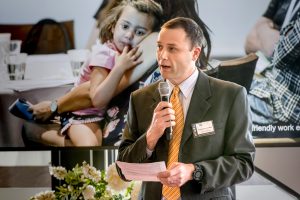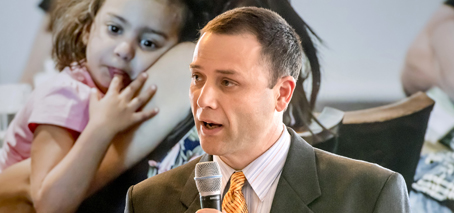
Prof Matt Davis talked about FLEET efforts in development outreach and equity at the Centre Launch, 12 June. This is Matt’s speech.
FLEET will deliver much more than excellent science for Australian society.
We are training some of the next generation of scientists, engineers, and entrepreneurs. We will help them develop not only technical research skills, but also transferable skills that will be useful to them no matter what their eventual career direction.
For example, we have ensured that our research groups have funding to send our students to work with our leading international partner investigators in Europe, Asia, and North America for up to six months at a time.
We have launched cross institutional mentoring programs, covering both academia and industry, to provides our early career researchers (ECRs) with a wide range of advice on career development and direction.
At our annual workshops, we hold dedicated half-day professional development sessions for our ECRs.
Only last week I was at the FLEET Idea factory, an ECR development workshop organised in collaboration with the ARC Centre of Excellence for Engineered Quantum Systems.
Over three days, six teams of postdoctoral researchers and PhD students worked at developing collaboration, communication and writing skills, and putting them into practice.
At the end they submitted a written research proposal, before pitching it in an oral presentation to a panel of expert judges.
Building on this experience, soon FLEET will launch an internal grant scheme for ECRs, where they can apply for funding to initiate collaborations or participate in other professional development activities.
FLEET is constantly looking for ways to promote both our own research, and STEM subjects in general to the broader community, so that they can better appreciate the importance and contribution of science in improving our standard of living and generating economic activity.
FLEET members are required to engage in 20 hours of outreach every year dedicated to improving the public understanding of science.
This has included supporting and participating in fun events such as science game shows and “Physics in the Pub” presentations, as well as organising public talks.
We have run many demonstrations and presentations for school students, linked to the national science curriculum.
FLEET’s Homescience program provides ideas for fun, easy, “do it yourself” science activities that can help foster a love of science in young children.
Finally, I would like to tell you about FLEET’s efforts with respect to equity and diversity. As I’m sure most of you are aware, science in general, and physics in particular, has a real problem with attracting and retaining women and minorities in scientific careers. FLEET is taking concrete action to improve equity and diversity in STEM areas.
For example, we are promoting participation of young women in STEM subjects at school through our outreach activities.
We ensure that any conference that we support financially must have policies in place to improve gender balance.
Our recruitment strategies are designed to avoid unconscious bias, and to attract women scientists at all career stages to FLEET.
Our “Women in FLEET” fellowships and scholarships will help improve gender equity in the workplace by retaining talented female scientists.
With these initiatives in skills development, outreach and equity, we will ensure that FLEET leaves a lasting impression on Australian science beyond the research results that we will achieve.
Prof Matt Davis talked about FLEET efforts in development outreach and equity at the Centre Launch, 12 June. This is Matt’s speech.
More information

